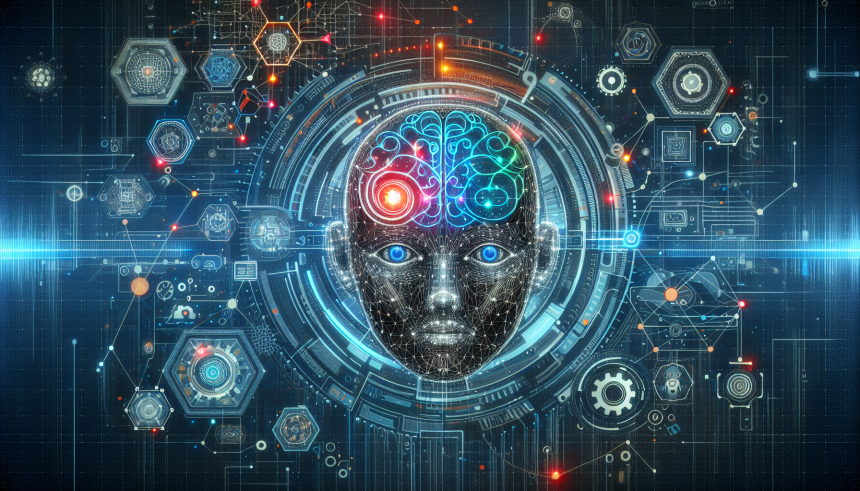Understanding the Future of Artificial Intelligence
Artificial Intelligence (AI) has transitioned from a theoretical concept to a driving force behind business innovation, technological advancement, and societal transformation. As we delve into the developments shaping the future of AI, it’s crucial to explore its applications, challenges, and the ethical considerations accompanying its rise.
The Current Landscape of AI
The contemporary AI ecosystem is vibrant, marked by rapid advancements in machine learning (ML), deep learning, natural language processing (NLP), and computer vision. Major tech companies such as Google, Microsoft, Amazon, and IBM are heavily investing in AI research and infrastructure, fostering an environment ripe for innovation. Furthermore, the proliferation of cloud-based AI services allows smaller enterprises access to powerful AI tools that were previously reserved for large corporations.
Recent AI models have demonstrated remarkable capabilities. For instance, OpenAI’s GPT-3 and its successor, GPT-4, have set new standards in NLP by generating human-like text, leading to applications in content creation, customer service, and beyond. Computer vision technologies have seen leaps in performance, enabling innovations in facial recognition, autonomous vehicles, and medical imaging diagnostics.
Emerging Trends in AI
1. Explainable AI (XAI)
As AI systems become more complex, so does the need for transparency in their operations. Explainable AI focuses on making AI decisions understandable to humans. This trend is important not only for building trust with users but also for compliance with regulations requiring accountability in automated decision-making.
2. AI in Healthcare
The healthcare sector is witnessing significant AI integration, improving patient outcomes through predictive analytics, personalized medicine, and diagnostic tools. AI algorithms analyze medical data to predict disease outbreaks, recommend treatment plans, and reduce costs. Companies like Zebra Medical Vision and Aidoc harness computer vision to analyze medical images, enabling faster and more accurate diagnoses.
3. Sustainability through AI
AI has the potential to drive sustainable practices. Machine learning models are being used to optimize energy consumption in smart cities, improve supply chain efficiency, and bolster climate change mitigation efforts. Techniques such as predictive maintenance take advantage of AI to minimize waste and extend equipment life, underscoring AI’s role in ecological sustainability.
4. Human-AI Collaboration
Rather than fully automating tasks, the future is trending toward enhancing human capabilities through AI. This collaborative approach, known as augmented intelligence, allows individuals to make better decisions with AI-supported insights. Professions such as finance, law, and education are seeing AI implementations that work alongside humans, providing valuable recommendations and analysis.
Challenges Facing AI Development
As promising as AI technologies are, several challenges must be addressed.
1. Data Privacy and Security
The rise of AI technologies brings with it the critical issue of data privacy. AI systems depend on vast datasets to function effectively, which raises concerns about how personal information is collected, used, and secured. Unregulated data use can lead to breaches of privacy, potential identity theft, and misuse of information, thus necessitating stringent data governance frameworks.
2. Bias and Fairness
AI algorithms are susceptible to biases present in training data, which can lead to discriminatory outcomes. There has been increasing scrutiny over algorithmic bias, particularly in sectors like hiring, policing, and lending. Addressing these biases involves developing strategies such as diverse training data, rigorous testing for discrimination, and fostering inclusive AI design teams.
3. The Job Market Landscape
AI’s growth has sparked debates regarding its impact on jobs. While AI can generate new roles, such as data scientists and AI ethicists, it threatens traditional jobs, particularly those involving repetitive tasks. The transition requires robust retraining and upskilling programs to prepare the workforce for an AI-centric economy.
Ethical Considerations in AI Development
As AI technologies evolve, they bring forth ethical dilemmas that society must grapple with.
1. Accountability and Liability
When AI systems make decisions, determining accountability becomes a complex issue. Who is responsible when an autonomous vehicle crashes or a biased algorithm results in wrongful convictions? Establishing clear guidelines on liability and responsibility for AI-driven actions is crucial.
2. The Role of Regulation
Governments and organizations are increasingly recognizing the need for regulatory frameworks to govern AI development. Legislation aimed at ensuring ethical AI has been proposed in several jurisdictions, focusing on transparency, accountability, and user rights. These regulations are essential in shaping a future where AI benefits society while minimizing risks.
3. The Future of AI Ethics
As AI technology continues to develop, the ethical considerations surrounding its use will also evolve. Continuous dialogue among technologists, ethicists, policymakers, and the public is necessary to navigate the moral landscape of AI. Establishing ethical guidelines, industry standards, and best practices will be pivotal in guiding responsible AI deployment.
The Path Ahead
1. Innovating Education and Training
Education systems are beginning to adapt curricula to include AI literacy, equipping future generations with the skills needed to thrive in an AI-driven world. Online platforms and resources have emerged to cater to various learning styles, making AI education accessible to broader demographics.
2. Fostering Innovation through Collaboration
Public-private partnerships are fundamental for advancing AI technology. Collaborations between academic institutions, governmental bodies, and businesses can drive research and innovation, accelerating the development of new AI applications that address societal challenges.
3. Global Perspectives on AI
AI is a global phenomenon, with different countries adopting varied approaches to its development and regulation. Engaging in international dialogue and cooperation is vital to share best practices, address global challenges, and promote equitable access to AI technologies.
In summary, as we navigate the future of artificial intelligence, it is imperative to embrace progress while addressing its inherent challenges and ethical implications. By fostering innovation, ensuring accountability, and promoting inclusivity, we can harness the full potential of AI to create a beneficial future for all.


